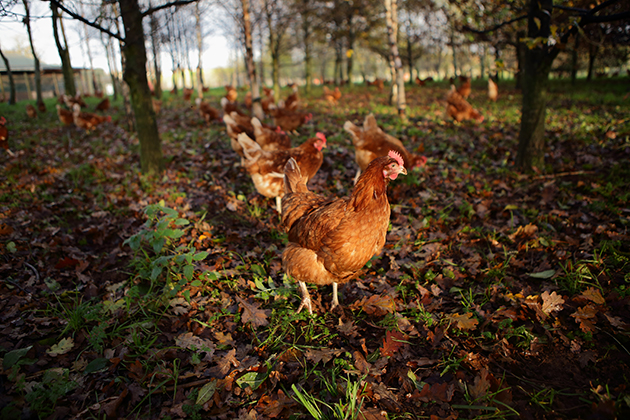Promotional feature with Woodland Trust
You might think you already know everything you need to about the Woodland Trust. But every Field reader, be they land manager, landowner, land agent, farmer or smallholder can benefit from their focus over the last five years on identifying how farming and forestry can be better integrated so that well sited trees can support more productive farming.
THE WOODLAND TRUST
The Woodland Trust was launched in 1972. Since then it has guided and advised in the planting of over 30 million trees in all parts of the UK. It has done this in an effort to substantially increase the area of native woodland in the UK. Woodland coverage in the UK currently falls far short of woodland area in other European countries (13% in the UK compared to an average 38% in Europe). The Trust are working with a range of farmers and research institutions to show via a network of demonstration farms how trees and farming can be successfully integrated. The Trust are also working with the devolved governments to establish appropriate support mechanisms and advice to encourage landowners to take action.
Through trials and practical experience the Woodland Trust has proved that tree and shrub planting can be incorporated into many types of farming and will bring a whole host of benefits. This is often referred to as agroforestry and there is a growing interest in it from farmers, foresters and policy makers. On most farms there is a feasible and profitable reason to plant trees, either in shelterbelts, where rows of trees are planted to provide protection for crops and wildlife and to minimise soil erosion, or alley cropping, where trees are planted in wide rows with a companion crop planted between them.
THE ROLE OF TREES IN ARABLE FARMING
Planting trees on farms improves resource protection; preventing soil and crop inputs being washed or blown away as well as enhancing soil organic matter. Farm businesses can benefit from the services that agroforestry supports such as increased habitat for pollinators and beneficial insects. Growing two crops from the same land such as rows of fruit trees through arable crops, can increase overall yield and productivity. Productivity increases under agroforestry can be significant, in some cases up to 40%. Fruits, nuts and timber can provide a secondary source of income and spread risk by product diversification. Well planned agroforestry using appropriate tree species can smooth out farm labour demands and provide a more diverse source of year-round income for farm businesses and staff.
BENEFITS OF TREES TO LIVESTOCK AND POULTRY

Planting trees can benefit livestock farmers in many ways
Shade and shelter provided by trees will help improve livestock performance, health and well-being. They help animals to maintain a positive energy balance making sure they are neither too hot or too cold. This helps ensure energy is used for growth and productivity rather than to regulate their metabolism. Studies have shown that in cold, wet and windy conditions lamb losses can be reduced by up to 30% if good shelter is provided. The shelter provided by hedgerows and tree belts has the effect of increasing soil temperature in the early spring and later autumn, extending the growing season for grass and reducing the need for supplementary feed at a critical time in young animals’ development. The leaves and bark of trees can provide a good source of browse increasing nutritional diversity and improving animal health. It is well proven that trees benefit free range poultry; hens ranging on land with 20% tree cover have been found to have increased laying rates and higher shell density meaning higher output, fewer seconds eggs, and reduced losses.
Integrating trees onto farms can help businesses to be resilient, diverse and produce a combination of agricultural and wood products from the same site.
To find out more about how the Woodland Trust can support your farming endeavour, and how woodland and farming can achieve a successful, cost-effective partnership contact the Woodland Trust on 0330 333 5303 or visit the Woodland Trust.





